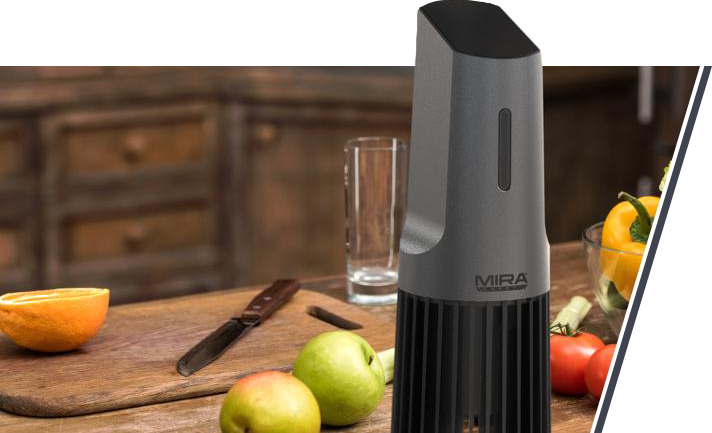The world of nutrition can be confusing.
One week we’re told that we’re not supposed to eat eggs. The next week, a new study shows they’re great for you!
With all of this flip-flopping, it can be hard to determine the answer to some of the longest-standing questions about our food.
For example, is monosodium glutamate (MSG) bad for you?
If we examine the scientific literature on this subject, we see the familiar back-and-forth on whether it’s good for you. But let’s see if we can’t take a good, solid look at this subject to come up with some definitive answers.
Table of Contents
-
01
What is MSG?
-
02
Chinese Restaurant Syndrome and MSG
-
03
Is MSG Bad for You?
-
04
It’s Not the Poison; It’s the Dose.
-
05
What’s the Final Verdict on MSG?
What is MSG?
If you’ve ever looked at the back of your package of Cheetos, you’ve likely been baffled by the sheer number of ingredients present. Everything seems to have a name that looks like it belongs in a chemistry set, and you’ll likely find MSG present there as well.

(Image source: MSG. Image courtesy of Wikimedia Commons.)
Technically called monosodium glutamate, MSG is a type of salt commonly added to foods to make them taste more savory. That’s MSG’s specialty, after all, somehow possessing the magical ability to add unique umami (savory flavor) to any food.
In and of itself, there’s nothing too special about all that. After all, isn’t that why I add spices, salt, cheese, and bacon to dishes? To make them have extra flavor? What makes MSG any different?
Why is there so much controversy surrounding this notorious little acronym?
Let’s take a look…
Chinese Restaurant Syndrome and MSG
In 1968, a letter was written to the editor of the New England Journal of Medicine by Dr. Ho Man Kwok that was soon to cause waves in the world of nutrition.
In this letter, Dr. Kwok claimed that every time he ate at a Chinese restaurant for the past several months, he developed numbness at the base of his neck, heart palpitations, and felt weak for days afterward.
He then theorized MSG that was the culprit.

(Image source: Image courtesy of Wikimedia Commons.)
As soon as the letter was published, other reports began trickling into the Journal from other doctors across the country. Then things went mainstream. By this point, ten doctors across the country had sent letters complaining about what was becoming known as “Chinese restaurant syndrome.”
The New York Times, noticing this, ran an article on the subject, causing MSG to be in headlines across the world.
But there appears to be a problem. There’s some evidence that it was all a big joke from the beginning.
To Win a Bet
Decades after Dr. Ho Man Kwok published his letter, one man fessed up to everything: Dr. Howard Steel, an orthopedic surgeon.
Marines like to poke fun at the Air Force, soldiers make fun of officers, and doctors make fun of the “sub-par” specialties. This inter-office joking is present regardless of where one works, and hospitals are no exception.
According to Steel, he and a fellow physician friend were eating Chinese food and drinking beer one night when his friend joked that the reason orthopedists were never published in academic journals was that they were too stupid.
Never one to turn down a challenge, Steel accepted a $10 bet from his friend that unlike most orthopedic professionals, he could make it into an academic journal.
And so, Dr. Ho Man Kwok was created.
Steel said that his letter to the editor was purposefully created to be so ridiculous that anybody would be able to see through it all to recognize it was a joke. “Ho Man Kwok” was a play on words for “human crock” – what he and his friends would call each other, each filled with a substance the gastroenterologists were well-familiar with.

A crock.
Even the name of the facility where Dr. Ho Man Kwok was said to have worked within the letter – the National Biomedical Research Foundation in Silver Spring, Maryland – was said to have been a fabrication.
Or was it?
Stranger still … there really is a National Biomedical Research Foundation in Silver Spring, Maryland. And a Dr. Ho Man Kwok worked there at the time.
But even the reporter responsible for pushing Steel’s story remembers his being mildly horrified that it had gained so much recognition.
Whatever the case, the story sparked a nationwide research hunt for the potential health consequences of eating MSG.
Is MSG Bad for You?
Within the research world, it’s both common and ethical to first experiment on animals before moving on to human subjects.
Mammals largely have similar physiology, and if we see a problem in mice with a substance, we have a good idea that it will cause harm to a human being as well.

And guess what? MSG seems to harm mice.
We’ve found evidence that suggests that MSG damages the hypothalamus (a part of the brain) in baby mice, causes diabetes in mice, makes mice get fat and creates fertility problems.
It also causes smaller testes and lowered testosterone, and the lethal dose for mice and rats was between 15,000 – 18,000mg/kg of body weight.
So, case closed, right?
We know it can cause issues in mice and rats, so shouldn’t it do the same to human beings?
Unfortunately, it’s not always that simple.
Does MSG Harm Humans?
The methodology and design of those early rat studies have since been called into question.

(Image source: Image courtesy of Wikimedia Commons.)
For starters, many of these studies utilized syringes to inject the MSG into the rodent.
The MSG still finds its way into the rat’s body, but substances behave differently when placed where they’re not supposed to be.
Consider oxygen. If you breathe it into your lungs, you’re fine. Inject it into your bloodstream, and you’ll have a stroke. Is oxygen the problem? Or its location?
Many of these studies weren’t as scientifically robust as may be hoped for as well (e.g., small study sizes). So what do human studies show us?
The answer? Something of a mixed bag.

(Image source: Image courtesy of Wikimedia Commons.)
MSG intake has been blamed for just about every adverse health condition under the sun. Infertility, cancer, heart problems, pain, asthma – it’s all there. But when the scientific literature tackles the subject, many of these issues seem to vaporize.
Take asthma, for example.

Most existing research shows no link between asthma symptoms and MSG intake. And the studies that do? They often have small sample sizes and have even withheld asthma medications from trial participants.
If you withhold somebody’s medicine, are they likely to experience symptoms? Is just knowing that they’re not allowed to take their prescription likely to give them some signs and symptoms as well? Absolutely.
Many of these other problems disappear when we consider the scientific literature.
For example, the link between MSG and neurological problems was not entirely based on fact when it was made in 1995. That was close to 30 years ago, so take that with a grain of salt (pun intended), but past research does hold weight.
And I suppose this is a good segway to what some of the known problems of MSG ingestion are (for there are a few): weight gain and headaches.
Does MSG Make You Fat?
MSG is added to food to make them more delicious.
So, doesn’t it then stand to reason that the more MSG we utilize, the more food we will eat? But is it delicious enough to make a serious contribution to obesity?
To an extent,the research seems to agree.
One 15-year-long Chinese study on roughly 10,000 people, a 1997 study of 752 people, and a Thai study of 349 people found that increased MSG intake was associated with a higher body mass index (read: they weighed more).
But then, in contrast, a Chinese study of 1227 people and a Vietnamese study of 1528 did not find a correlation between MSG intake and higher body mass.
The Thai study is viewed as the most rigorous and controlled of the lot, meaning that overall, there does seem to be some credence to the idea that MSG may cause problems with weight gain.
But are there other potential issues? Yep.
A Real Headache
This author believes that the health condition with the most research behind it related to MSG is headaches. This study of 14, this one of 14, this study of 130, and this study of 36 all found that people who eat MSG may experience headaches. (There is this study of 71 that found zero headache correlation, too, for full disclosure.)
All of these studies combined do seem to suggest that MSG ingestion can cause headaches. If you are somebody that struggles with headaches on a regular basis, that may be food for thought.

Bring the Pain
There may even be a link between MSG ingestion and pain.
While it’s often joked that the doctor gives a fibromyalgia diagnosis when he doesn’t know what is going on, some things do seem to aggravate fibromyalgia pain. MSG may be one of them. One study did find that fibro pain was increased when MSG was consumed.

(Image source: Image courtesy of Wikimedia Commons.)
And fibro sufferers may not be alone in this. Those with myofascial temporomandibular disorder, which we will gladly abbreviate TMD, also noticed an increase in spontaneous pain after eating MSG.
“It’s Not the Poison; It’s the Dose.”
The Joint FAO/World Health Organization Expert Committee on Food Additives (JECFA), the FDA, and the European Food Safety Authority all consider monosodium glutamate to be a GRAS substance – generally recognized as safe.

(Image source: Image courtesy of Wikimedia Commons.)
That’s a number of authorities from all across the world right there.
However, we also know that the FDA has publicly admitted that eating large doses of MSG can alter human hormonal function. They’ve also said that they don’t think that the public eats anywhere near what these “large” doses would be.
Part of the problem here, though, is the rapid change in diet combined with a flood of new research. You can’t build policy and recommendations solely off 50-year-old research when the great bulk of the new research coming out today refutes it.
For this reason, there’s been a bit of commotion about the GRAS (generally recognized as safe) levels for MSG. Some think that what these government bodies have pegged as the US GRAS level of MSG is much too high.

(Image source: EFSA headquarters. Image courtesy of Wikimedia Commons.)
So, in 2017, the European Food Safety Authority (EFSA) delved into this problem. Their conclusions? The GRAS level of MSG should be 30 mg of MSG per kilogram of body weight per day.
In other words, if you weigh 100 kg, you should be able to eat 3000mg of MSG/day without any health issues.
The problem?
The EFSA also discovered that most Europeans eat more than 30mg/kg of body weight per day.
“But what if I have an MSG sensitivity?”
You could, that’s true. But MSG sensitivities affect less than 1% of the population. It’s not a common problem. Like any other allergy or sensitivity, you would want to avoid the causative factor like the plague.
People with a sensitivity to MSG tend to experience breathing difficulties within 1-2 hours after eating an MSG-heavy meal.
The problem is that many people who claim to have MSG sensitivity have self-diagnosed themselves (something anybody who has ever worked in healthcare finds annoying). There are a lot of psychosomatic factors to consider here as well.
For those receptive to suggestions, simply telling them that they may have an MSG sensitivity may be all it takes to experience signs and symptoms.
All this isn’t to say that MSG sensitivities aren’t real, but the chance of having one is minimal. And if you do? Then don’t eat it.
What’s the Final Verdict on MSG?
Is MSG bad for you? Should you limit how much MSG seasoning you use?
It appears that the scientific world is still searching for answers here. While Chinese restaurant syndrome has largely been dismissed as nonsense within the scientific community, many people have raised some valid questions regarding this humble salt.
But according to the research that this author is acquainted with, it appears that MSG is:
-
1). Best eaten sparingly.
-
2). Isn’t as dangerous as is widely thought.
-
3). Can potentially cause issues with headaches and weight gain.
The modern diet is packed with commercial food products. People have largely ditched cooking from scratch in favor of eating wrapped, processed foods loaded with MSG. Could there be potential long-term health consequences of eating MSG regularly? Sure.
But it’s also hard to definitively say what those health consequences could be at the moment.
If you don’t want to be a human guinea pig for the next generation, know that MSG causes a reaction in your body, or are simply concerned about some of the controversy around this salt, you have two ways out.
For starters, you can try to cook from scratch as much as possible. The less processed food you eat, the less MSG you will consume.

The second thing you may want to do is to use the MIRA Safety Detoxifier. MSG is commonly applied to tofu products, nuts, and vegetarian meat options. If you are concerned about MSG on the surface of your food, using the MIRA Safety DTX-1 Food Detoxifier is one option that may help you to remove it.
But what are your thoughts? Let us know in the comment section below.






